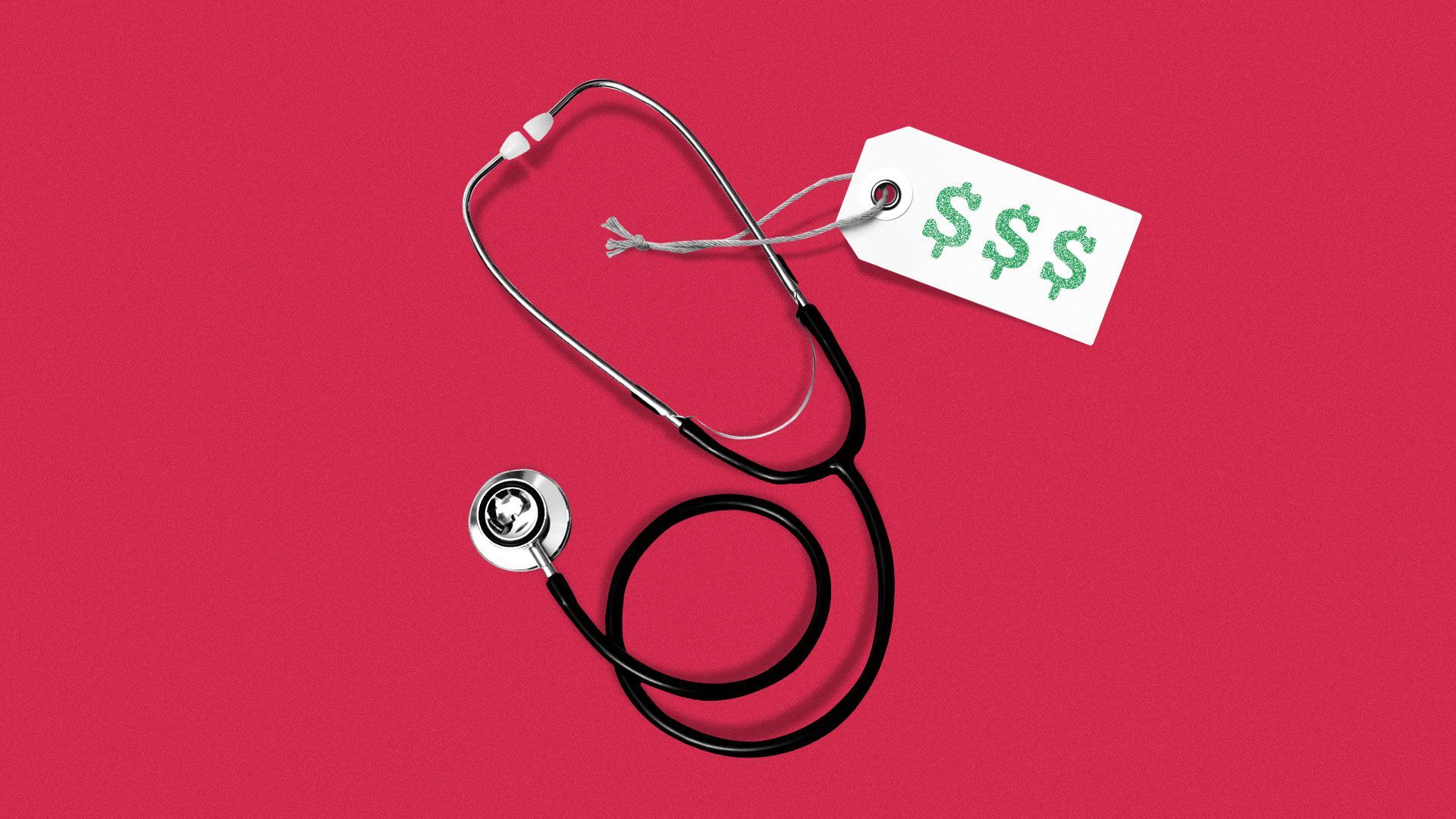Feb 9, 2021 - Health
Study: More evidence health care cost-sharing doesn't work
Add Axios as your preferred source to
see more of our stories on Google.

Illustration: Eniola Odetunde/Axios
Add Axios as your preferred source to
see more of our stories on Google.

Illustration: Eniola Odetunde/Axios